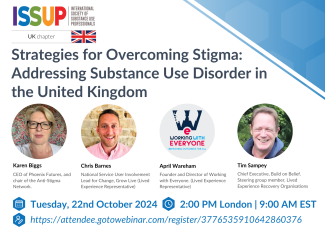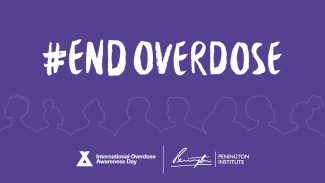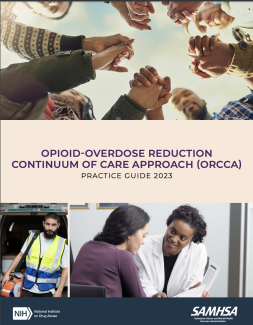Substances
Research Into Action Webinar: The Evolving Alcohol Market: Tools for Coalition Advocacy
Join CADCA for an upcoming Research Into Action webinar on Tuesday, October 8th, 2024, at 1:00 p.m. (EST), featuring Dr.
Impact of Disinformation and Misinformation about Drugs on Children and Adolescents.
ISSUP Argentina cordially invites you to its webinar on Impact of Drug Disinformation and Disinformation on Children and Adolescents.

Strategies for Overcoming Stigma: Addressing Substance Use Disorder in the United Kingdom
ISSUP UK presents its webinar on Strategies for Overcoming Stigma: Addressing Substance Use Disorder in the United Kingdom.
Strategies for Overcoming Stigma: Addressing Substance Use Disorder in the United Kingdom
ISSUP UK presents an upcoming webinar on 22nd October on "Strategies for Overcoming Stigma: Addressing Substance Use Disorder in the United Kingdom."

The Overdose Crisis Across the Globe: An Expert Panel Discussion
This webinar hosted by the Penington Institute to Mark International Overdose Awareness Day 2024 brings together a panel with diverse perspectives, insights, experiences, research, and solutions to the overdose crisis.

Call for Submissions: CPDD 87th Annual Scientific Meeting
New Orleans, June 14-18, 2025 The CPDD meeting is an in-person meeting with no digital participation options. Symposium, Mini-Symposium, Workshop, and Forum Deadline: Friday, October 18, 2024 Call for Proposals and Submission Guidelines...
Prevalence of problematic pharmaceutical opioid use in patients with chronic non-cancer pain: A systematic review and meta-analysis
Abstract Background and aims Chronic non-cancer pain (CNCP) is one of the most common causes of disability globally. Opioid prescribing to treat CNCP remains widespread, despite limited evidence of long-term clinical benefit and evidence of...
Why Do Only Some Cohort Studies Find Health Benefits From Low-Volume Alcohol Use? A Systematic Review and Meta-Analysis of Study Characteristics That May Bias Mortality Risk Estimates
This study looks at how certain factors in research can skew the results when estimating the health effects of drinking small amounts of alcohol. These biases can affect public health advice and shape how people view alcohol’s potential...

Overdose Resource Exchange (ORE)
Overdose Resource Exchange (ORE) is a central collection of CDC-reviewed communication materials and educational resources about opioid misuse, addiction, treatment, and overdose prevention for state, territorial, and local health...

Opioid-Overdose Reduction Continuum of Care Approach (ORCCA) Practice Guide 2023
This guide was drawn from HEALing Communities Study (HCS) learnings to-date and expert insights to provide guidance regarding implementation of ORCCA menu strategies.
